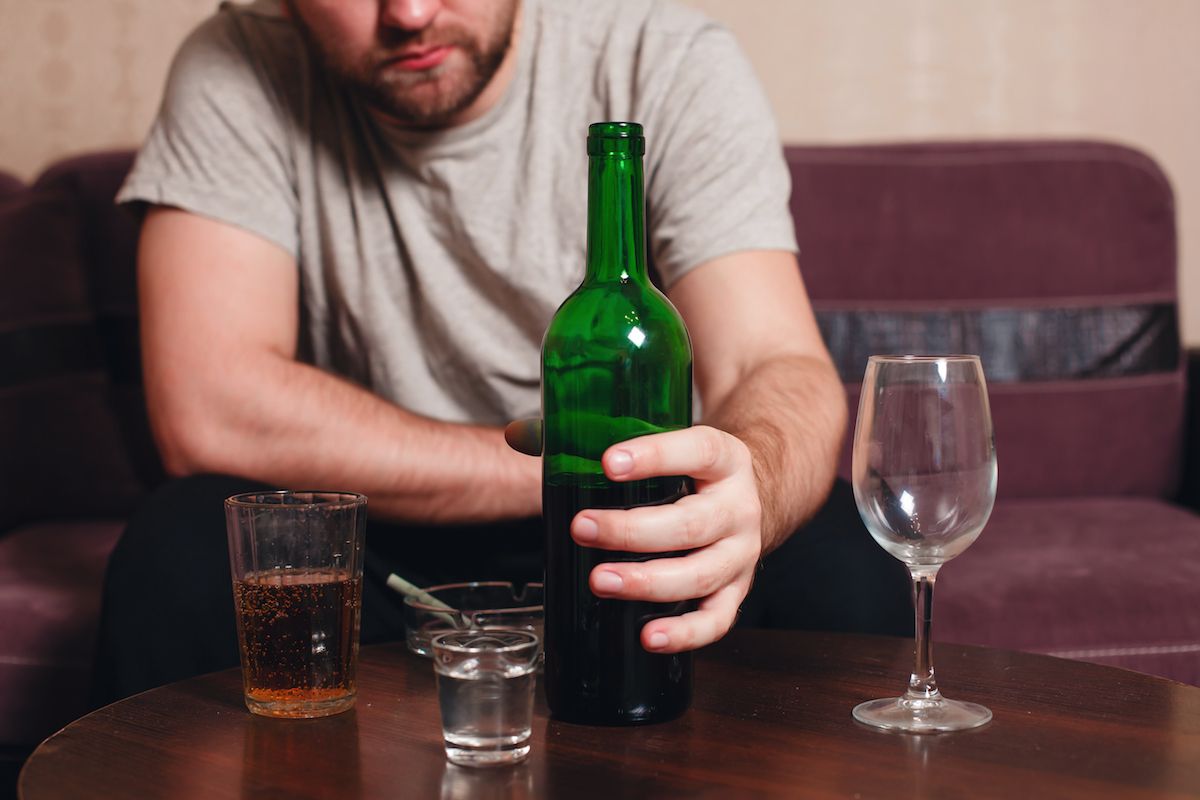Consuming a lot of alcoholic content in a short period can send a person into a state of alcohol poisoning. Binge drinking is when you take a lot of alcoholic drinks in a short period. Regardless of the type of alcohol consumed, be it liquor, wine, or beer, the alcohol enters the bloodstream, causing blood alcohol levels to increase. Alcohol poisoning negatively affects the part of the brain known to control the temperature, breathing, heart rate, and blood pressure.
Each year, more than 2,000 people are affected by alcohol poisoning, with the male population between 35 and 64 having the most hit. Nevertheless, it is important to note the symptoms of alcohol poisoning to prevent fatal outcomes. In this article, we will discuss more on alcohol poisoning, its causes, symptoms, and why it is essential to identify the signs of alcohol poisoning on time.
Table of Contents
ToggleDifference between being drunk and alcohol poisoning

While being drunk (hangovers) and alcohol poisoning share similar symptoms, the latter is much worse and can lead to life-threatening conditions. Experiencing a hangover is caused by several reasons, including headaches, decreased blood sugar levels, and dehydration which is caused by alcohol-induced inflammation, the expansion of blood vessels, and irritation of the stomach lining from alcohol.
If you are experiencing a hangover, you will experience symptoms like difficulty keeping mental focus, muscle pains, lack of appetite, intense thirst, headaches, nausea, increased heart rate, feelings of weakness and tiredness, stomach aches or vomiting, dizziness, trembling or shaking hands. You can overcome hangovers by doing the following; getting enough sleep, taking over-the-counter pain medication, taking caffeine, eating healthy foods, and rehydrating yourself.
On the other hand, you will experience the following symptoms in the case of alcohol poisoning; falling unconscious and not waking up, increased heart rate, blue lips or fingers, constant confusion, drop in blood pressure, hypothermia, slow or shallow breathing, irregular breathing patterns, continuous vomiting, seizures, and pale skin.
Note: Seek professional medical help in this case, as it’s not advisable to self-medicate for alcohol poisoning.
What amount of alcohol consumption can lead to alcohol poisoning?
It’s quite difficult to know the right amount of alcoholic content that can eventually lead to alcohol poisoning. The quantity of alcohol content that leads to alcohol poisoning varies according to several factors like enzyme production, gender, medication use, weight, water composition, weight, and age. A single standard bottle of an alcoholic drink contains around 14 grams of pure alcohol and will increase your blood alcohol concentration (BAC) by 0.02 percent when consumed. You might pass out as a result of taking a bottle or two; the quantity isn’t always the case. What matters is how quickly alcohol is absorbed by your system.
To put it in perspective, the liver metabolizes most of the alcohol you take, and the more you binge drink, the greater your risk of alcohol poisoning. Hence, it’s best to know your limits and understand the amount of alcohol your body can handle. When you drink alcohol on an empty stomach and combine different alcoholic beverages, you stand the risk of alcohol poisoning. If someone is experiencing alcohol poisoning, the sensible thing to do would be to call for help immediately.
Body changes that occur when experiencing alcohol poisoning

When you have alcohol poisoning, there are specific changes that occur in your body due to the level of alcohol in your bloodstream. If you binge drink, your blood alcohol concentration (BAC) level enters an abnormal state and this always leads to alcohol poisoning.
Alcohol poisoning affects the body in several ways, from amnesia (blackouts) to decreased motor coordination, impaired judgment, slowing down cognitive neural functions, causing mental confusion, and difficulty staying conscious or awake; the side effects are way too many to list. Did you know that alcohol poisoning causes respiratory depression, which slows breathing and causes you to choke on your vomit? It can also cause irregular breathing and a decreased heart rate, leading to lower blood sugar levels that can cause seizures or coma.
Alcohol poisoning can cause a reduction in body temperature, leading to pale or bluish skin and dehydration, and it can even cause irreversible brain damage, pancreatic damage, and death in severe cases. The risk factors for alcohol poisoning include size and weight, tolerance to alcohol, overall health, medications, the time between drinking and eating, and the percentage of alcohol in your drink.
To prevent these kinds of traumatic experiences from ever happening to you, take your drinks in moderation, drink slowly, drink water after each drink, don’t drink on an empty stomach, don’t take medications with alcohol, and store products containing alcohol safely away from children.
What to do if a person suffers from alcohol poisoning
If a person is suffering from alcohol poisoning, here are some specific steps you should take to help control the situation:
- Check for symptoms of alcohol overdose, such as unconsciousness, slow or irregular breathing, seizures, and vomiting while asleep or unconscious.
- If the person is unresponsive, call the ambulance immediately. The person may need urgent medical attention to prevent choking, irregular heartbeats, and other life-threatening complications.
- While waiting for medical help, gently turn the person onto their side in the Bacchus Maneuver position to prevent choking on vomit.
- Keep the person quiet and comfortable, and monitor them closely for changes in their condition.
- If the person is conscious and responsive, check on them frequently to ensure they stay conscious and do not worsen.
Keep in mind that these are the necessary steps to take to revive a person suffering from alcohol poisoning. Do not give them coffee, shower them or force them to walk, as these will not help and may even be harmful.
Conclusion
Alcohol poisoning is life-threatening and should be taken seriously. When ignored can lead to fatal conditions. Keep in mind that the symptoms of alcohol poisoning differ from those of being drunk or experiencing a hangover. It is essential to know the signs of alcohol poisoning, as this knowledge can prevent fatal outcomes. So if someone is suspected of having alcohol poisoning, it is crucial to act quickly and get help from a medical professional. Alcohol poisoning can cause severe, irreversible health problems, including brain and pancreatic damage and even death in severe cases. Therefore, it is best to drink alcohol in moderation, slowly, drink water after each drink, eat before drinking, and avoid mixing alcohol with medication.

I am a passionate beer connoisseur with a deep appreciation for the art and science of brewing. With years of experience tasting and evaluating various beers, I love to share my opinions and insights with others and I am always eager to engage in lively discussions about my favorite beverage.
















